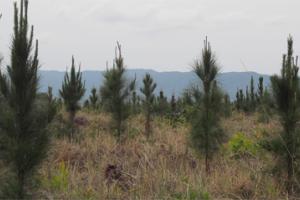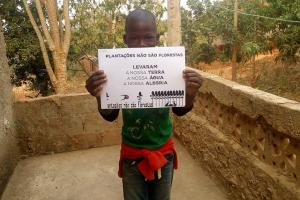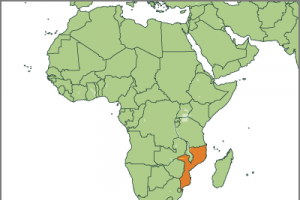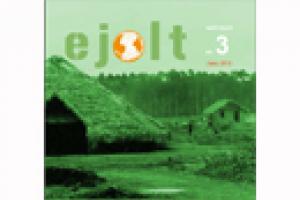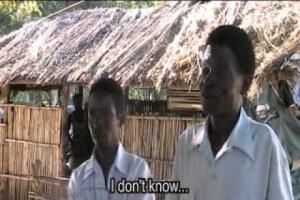Governments are opening the doors to corporations for planting vast areas of land with oil palm plantations. This trend is not only happening in West and Central African countries, but is even expanding to parts of Eastern Africa. Large scale oil palm plantations are already causing serious environmental and social impacts in some countries, resulting in loss of community rights over their territories.
Mozambique
Publications
30 August 2013
Bulletin articles
30 June 2013
Bulletin articles
30 June 2013
Members of the National Peasants Union, known as UNAC, in Mozambique, and representatives of international nongovernmental organizations following the Tokyo International Conference on African Development have called on the governments of Japan, Brazil and Mozambique to halt the ProSavana program.
Bulletin articles
27 February 2013
The organization Fian International - for the right to adequate food, began an action in October 2012 to end on 30 April 2013 in defense of peasant communities in Niassa province in Mozambique who have lost access to land used for food production and to natural forests and thus are facing food insecurity and violations of their right to food due to the establishment of large-scale tree plantations promoted and financed by Sweden.
Other information
30 August 2012
Members of farmers’ organizations, women’s movements and civil society organizations from South Africa, Zimbabwe, Malawi, Swaziland, Lesotho, the DRC and Mozambique gathered on August 15-16 in Maputo, Mozambique, to analyze the multi-dimensional global crisis and the response of African governments.
Publications
11 June 2012
After many years of supporting local struggles and disseminating information from different countries on tree monocultures and its impacts, WRM presents a new report to all those involved in these struggle (1). No better time than the month of September 21st, International Day of Struggle against Tree Monocultures (2), to launch this new report.
Bulletin articles
30 April 2012
The interest of foreign investors in natural resources, and especially land, has grown significantly in recent years throughout Africa, and Mozambique is no exception. It is in the northern region of the country that foreign investment projects have come to occupy the largest areas of land in Mozambique, primarily for the establishment of monoculture plantations of eucalyptus, pine, jatropha and sugarcane.
Other information
30 December 2011
On December 3, 2011, a front page article in the Dutch newspaper Volkskrant, denounced that the Dutch pension fund, ABP, one of the biggest in the world, is investing money through the Global Solidarity Forest Fund (GSFF), an initiative of Swedish and Norwegian Churches, in a monoculture tree plantation project of pine and eucalyptus in Mozambique that is affecting negatively peasant communities (see WRM publication of 2010: www.wrm.org.uy/paises/Mozambique/livro.pdf).
Other information
30 September 2011
In the South East of Africa, Mozambique glimmers like a bright jewel in the African sunlight.
The coastline stretches thousands of kilometres, the warm Indian Ocean feeding the abundance of life. Ragged tooth and Zambezi sharks patrol the coral reefs, alive with sounds in an underwater spectacle of a wide variety of colourful fish, manta rays and turtles. Line-fish, muscles, crabs, shrimps, prawns and crayfish, these rich food resources are available in Mozambique, and have been feeding the people for thousands of years.
Other information
2 September 2011
Based on a demand of our friends from Geasphere from Southern Africa, we are urging for an end to the financing of the establishment of eucalyptus and pine plantations in Mozambique which are causing negative impacts, especially land conflicts with peasant communities. The letter will be sent to the Global Solidarity Forest Fund which invests in these plantations.
Other information
30 April 2011
For a number of years, peasant farmer communities in the province of Niassa, in northern Mozambique, have been fighting back against the expansion of monoculture pine and eucalyptus plantations. This expansion has caused serious problems because it is taking over land from machambas, small family farms used to grow food. Now the struggle waged by these communities has received a significant boost.

